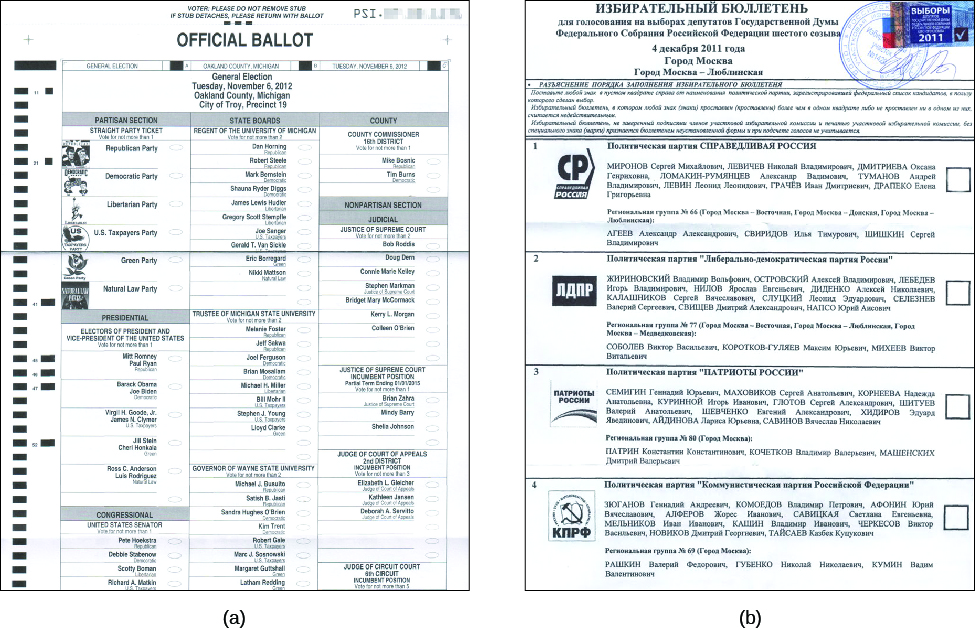| << Chapter < Page | Chapter >> Page > |

One possible way to implement proportional representation in the United States is to allocate legislative seats based on the national level of support for each party’s presidential candidate, rather than on the results of individual races. If this method had been used in the 1996 elections, 8 percent of the seats in Congress would have gone to Ross Perot’s Reform Party because he won 8 percent of the votes cast. Even though Perot himself lost, his supporters would have been rewarded for their efforts with representatives who had a real voice in government. And Perot’s party’s chances of survival would have greatly increased.
Electoral rules are probably not the only reason the United States has a two-party system . We need only look at the number of parties in the British or Canadian systems, both of which are winner-take-all plurality systems like that in the United States, to see that it is possible to have more than two parties while still directly electing representatives. The two-party system is also rooted in U.S. history. The first parties, the Federalists and the Jeffersonian Republicans, disagreed about how much power should be given to the federal government, and differences over other important issues further strengthened this divide. Over time, these parties evolved into others by inheriting, for the most part, the general ideological positions and constituents of their predecessors, but no more than two major parties ever formed. Instead of parties arising based on region or ethnicity, various regions and ethnic groups sought a place in one of the two major parties.
Scholars of voting behavior have also suggested at least three other characteristics of the U.S. system that are likely to influence party outcomes: the
Electoral College , demobilized ethnicity, and campaign and election laws. First, the United States has a presidential system in which the winner is selected not directly by the popular vote but indirectly by a group of electors known collectively as the Electoral College. The winner-take-all system also applies in the Electoral College. In all but two states (Maine and Nebraska), the total of the state’s electoral votes go to the candidate who wins the plurality of the popular vote in that state. Even if a new, third party is able to win the support of a lot of voters, it must be able to do so in several states in order to win enough electoral votes to have a chance of winning the presidency.
Besides the existence of the Electoral College, political scientist Gary W.
Cox has also suggested that the relative prosperity of the United States and the relative unity of its citizens have prevented the formation of “large dissenting groups” that might give support to third parties.

Notification Switch
Would you like to follow the 'American government' conversation and receive update notifications?